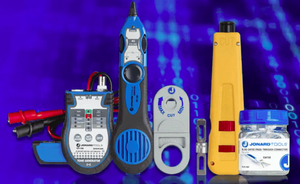Professional Telecommunication Tools for Telecom Workers
Posted By James Rahul
Body
Telecommunication professionals play a critical role in ensuring that communication networks operate smoothly and efficiently. Their work involves installing, maintaining, and troubleshooting complex network systems. To perform these tasks effectively, technicians rely on a set of specialized telecommunication tools that enhance productivity and reliability. This article explores essential tools every telecom worker should have in their toolkit.
Essential Tools for Telecom Technicians
Telecom technicians need a variety of tools to handle different aspects of network installation and maintenance. The right equipment not only makes the job easier but also ensures high-quality results. Among the most important are networking tools, which allow for precise cable handling, secure connections, and accurate testing.
Cable Cutters and Strippers
One of the foundational tools for any telecom worker is a high-quality cable cutter and stripper. These tools enable technicians to cut and strip wires cleanly without damaging the internal conductors. Properly prepared cables are essential for strong signal transmission and long-lasting network performance.
Crimping Tools
Crimping tools are used to attach connectors to the ends of network cables, such as RJ45 connectors for Ethernet systems. A reliable crimper ensures a secure connection, reducing the risk of signal loss and connectivity issues. Telecom professionals often rely on precision crimpers to achieve consistent results across multiple installations.
Punchdown Tools
Punchdown tools are indispensable for inserting wires into insulation displacement connectors (IDC) on patch panels or terminal blocks. Using a high-quality punchdown tool ensures proper contact and minimizes connectivity problems. These tools are critical for both new installations and network maintenance tasks.
Cable Testers
Cable testers are used to verify the integrity of network cables. They help detect problems such as miswiring, shorts, or open circuits, allowing technicians to troubleshoot efficiently. A reliable cable tester is an essential tool for any telecom professional working with both new and existing network infrastructure.
Multimeters
Multimeters are versatile instruments that measure voltage, current, and resistance. In the telecommunications field, they are used to diagnose electrical issues, verify equipment functionality, and ensure systems operate within safe parameters. A quality multimeter is a must-have for technicians who handle both data and power cabling.
Tone Generators and Probes
These tools are used to trace and identify cables within walls, bundles, or large installations. A tone generator sends a signal through the cable, which is then detected by a probe. This allows technicians to locate specific wires quickly without causing damage or disrupting other systems.
Lineman’s Handset
A lineman’s handset is a portable device used for testing telephone lines. It allows telecom professionals to listen for dial tones, check line quality, and diagnose issues during installation or repair. This tool is particularly useful for field technicians working with legacy telephone infrastructure or VoIP networks.
Comprehensive Tool Kits
For convenience and efficiency, many telecom workers prefer all-in-one tool kits. These kits typically include crimpers, punchdown tools, cable cutters, strippers, pliers, and screwdrivers. Having a well-organized kit allows technicians to carry everything they need to a job site, reducing time spent searching for individual tools.
Importance of Quality Tools
Investing in durable and precise telecom tools is critical for professional technicians. High-quality tools improve efficiency by making tasks easier and faster to complete. They also enhance safety, reduce hand fatigue, and ensure that installations are done correctly the first time. Long-lasting tools provide value over time, making them a smart investment for telecom professionals.
Selecting the Right Networking Tools
When choosing networking tools, it is important to consider the specific requirements of your work. Tools should be ergonomically designed for comfort, precise enough for delicate connections, and durable enough to withstand frequent use. Whether you are working with fiber optics, Ethernet cables, or telephone lines, selecting the right tool can make a significant difference in your productivity and the quality of your work.
Telecommunication work demands skill, precision, and the right equipment. From cable cutters and crimpers to punchdown tools and testers, every tool in a technician’s kit plays a vital role in ensuring reliable network performance. Investing in high-quality telecommunication tools not only enhances efficiency and safety but also contributes to the long-term reliability of the networks being installed or maintained. By equipping themselves with the right tools, telecom professionals can stay prepared for any challenge their fieldwork presents.
Essential Tools for Telecom Technicians
Telecom technicians need a variety of tools to handle different aspects of network installation and maintenance. The right equipment not only makes the job easier but also ensures high-quality results. Among the most important are networking tools, which allow for precise cable handling, secure connections, and accurate testing.
Cable Cutters and Strippers
One of the foundational tools for any telecom worker is a high-quality cable cutter and stripper. These tools enable technicians to cut and strip wires cleanly without damaging the internal conductors. Properly prepared cables are essential for strong signal transmission and long-lasting network performance.
Crimping Tools
Crimping tools are used to attach connectors to the ends of network cables, such as RJ45 connectors for Ethernet systems. A reliable crimper ensures a secure connection, reducing the risk of signal loss and connectivity issues. Telecom professionals often rely on precision crimpers to achieve consistent results across multiple installations.
Punchdown Tools
Punchdown tools are indispensable for inserting wires into insulation displacement connectors (IDC) on patch panels or terminal blocks. Using a high-quality punchdown tool ensures proper contact and minimizes connectivity problems. These tools are critical for both new installations and network maintenance tasks.
Cable Testers
Cable testers are used to verify the integrity of network cables. They help detect problems such as miswiring, shorts, or open circuits, allowing technicians to troubleshoot efficiently. A reliable cable tester is an essential tool for any telecom professional working with both new and existing network infrastructure.
Multimeters
Multimeters are versatile instruments that measure voltage, current, and resistance. In the telecommunications field, they are used to diagnose electrical issues, verify equipment functionality, and ensure systems operate within safe parameters. A quality multimeter is a must-have for technicians who handle both data and power cabling.
Tone Generators and Probes
These tools are used to trace and identify cables within walls, bundles, or large installations. A tone generator sends a signal through the cable, which is then detected by a probe. This allows technicians to locate specific wires quickly without causing damage or disrupting other systems.
Lineman’s Handset
A lineman’s handset is a portable device used for testing telephone lines. It allows telecom professionals to listen for dial tones, check line quality, and diagnose issues during installation or repair. This tool is particularly useful for field technicians working with legacy telephone infrastructure or VoIP networks.
Comprehensive Tool Kits
For convenience and efficiency, many telecom workers prefer all-in-one tool kits. These kits typically include crimpers, punchdown tools, cable cutters, strippers, pliers, and screwdrivers. Having a well-organized kit allows technicians to carry everything they need to a job site, reducing time spent searching for individual tools.
Importance of Quality Tools
Investing in durable and precise telecom tools is critical for professional technicians. High-quality tools improve efficiency by making tasks easier and faster to complete. They also enhance safety, reduce hand fatigue, and ensure that installations are done correctly the first time. Long-lasting tools provide value over time, making them a smart investment for telecom professionals.
Selecting the Right Networking Tools
When choosing networking tools, it is important to consider the specific requirements of your work. Tools should be ergonomically designed for comfort, precise enough for delicate connections, and durable enough to withstand frequent use. Whether you are working with fiber optics, Ethernet cables, or telephone lines, selecting the right tool can make a significant difference in your productivity and the quality of your work.
Telecommunication work demands skill, precision, and the right equipment. From cable cutters and crimpers to punchdown tools and testers, every tool in a technician’s kit plays a vital role in ensuring reliable network performance. Investing in high-quality telecommunication tools not only enhances efficiency and safety but also contributes to the long-term reliability of the networks being installed or maintained. By equipping themselves with the right tools, telecom professionals can stay prepared for any challenge their fieldwork presents.









Comments